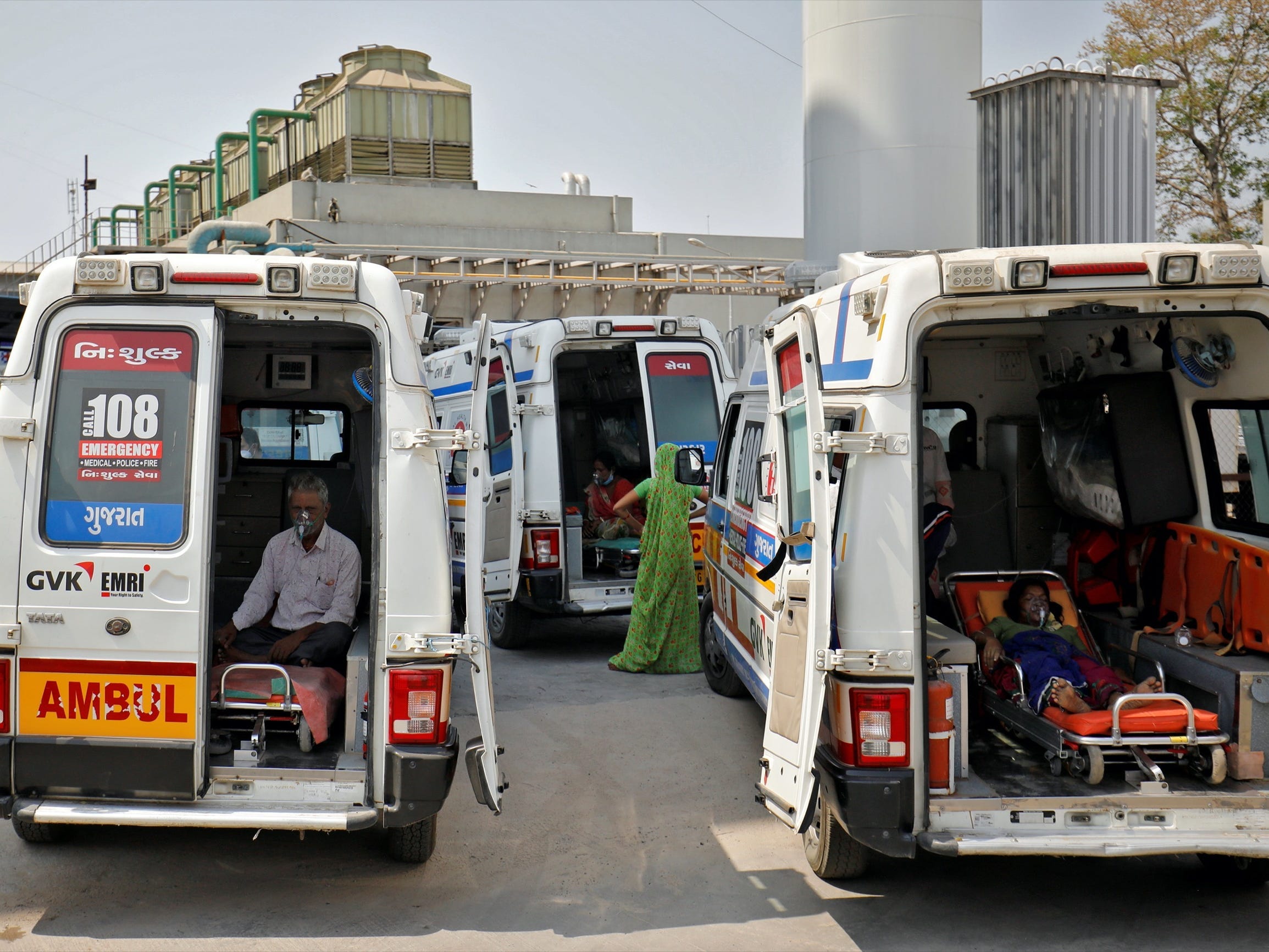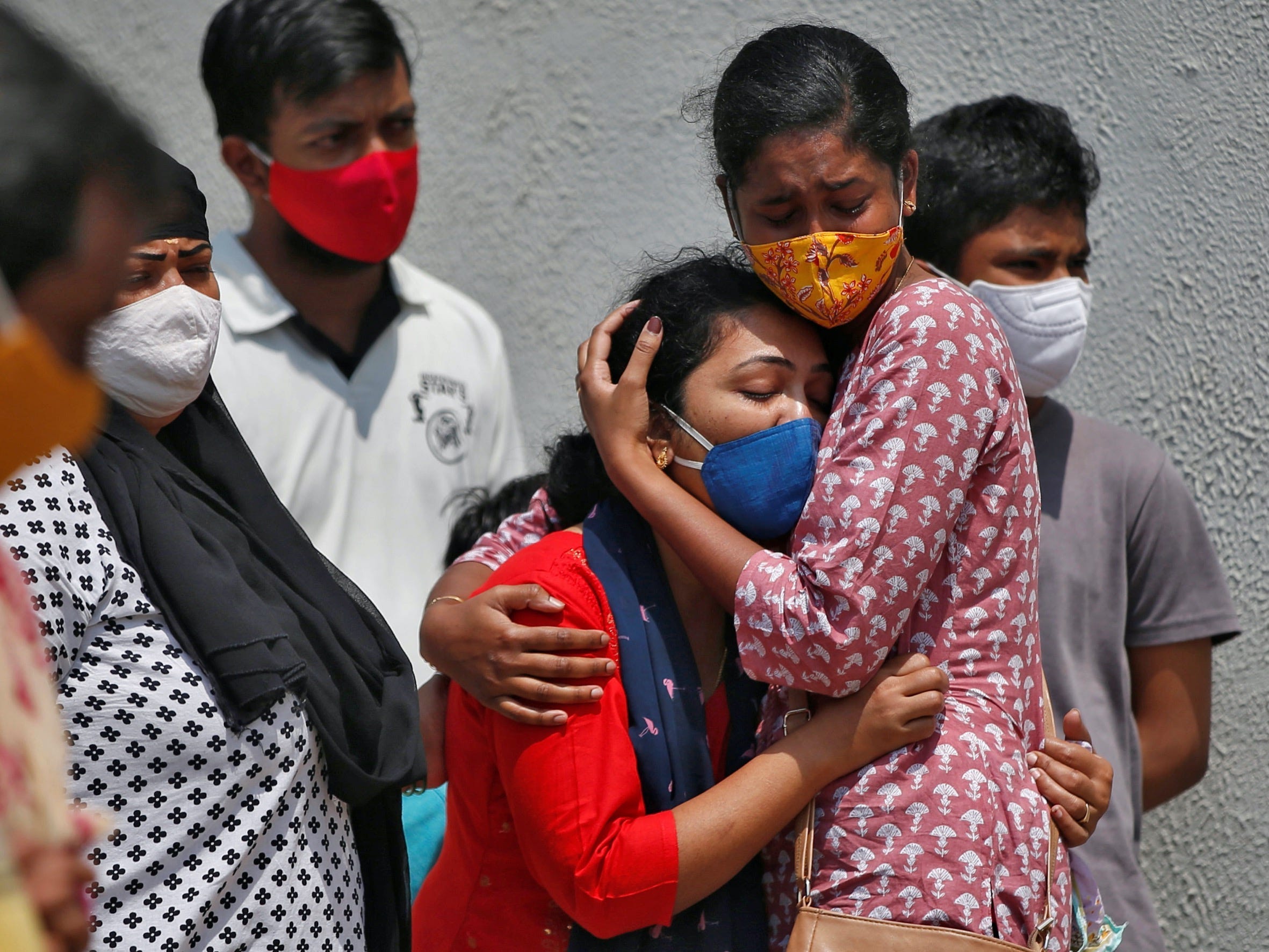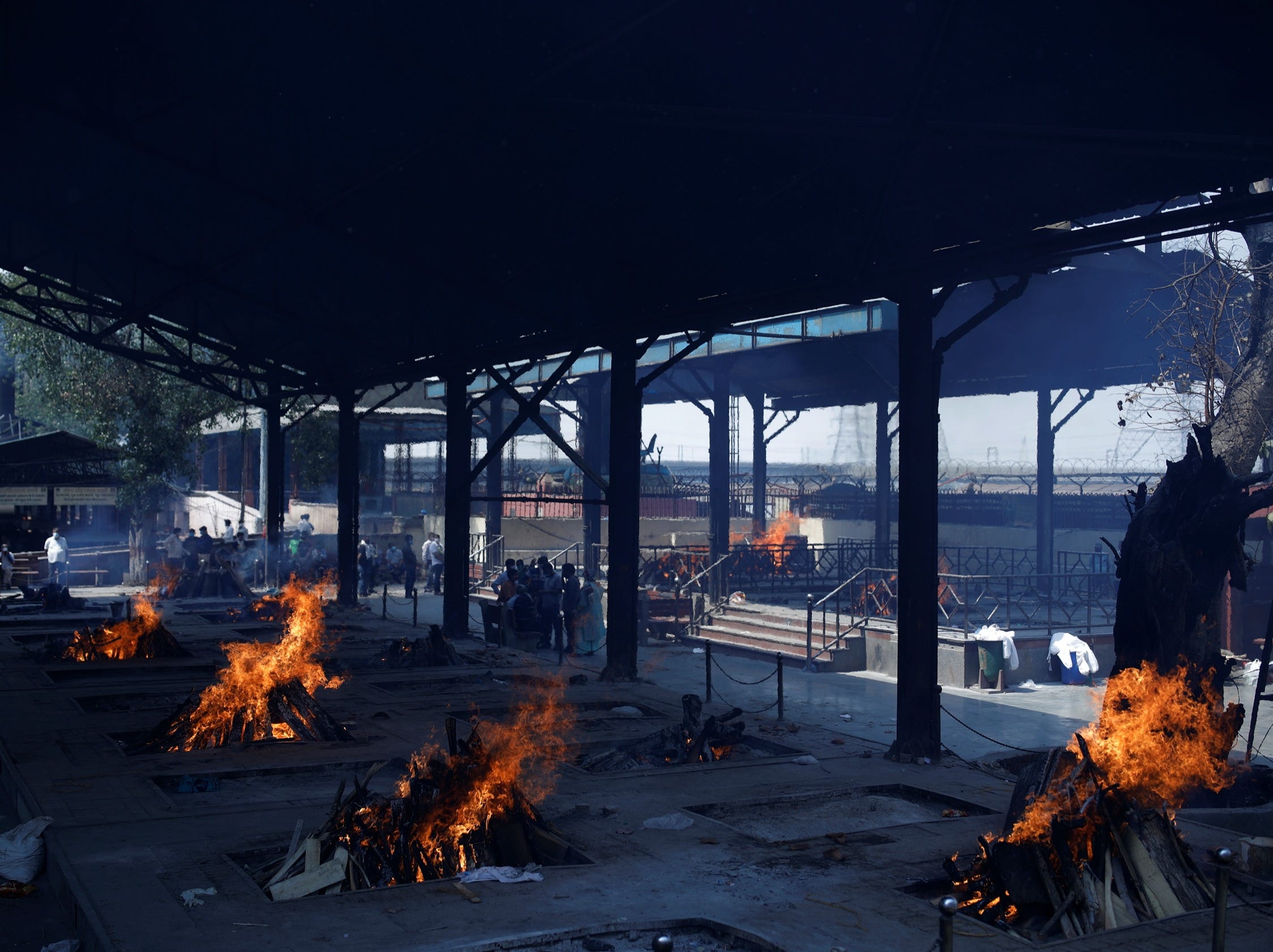
REUTERS/Amit Dave
- Relatives of COVID-19 patients stole oxygen cylinders from an Indian hospital twice in two days, per local news reports.
- India is facing a severe oxygen shortage as it battles a devastating second coronavirus wave.
- The country reported a record 2,023 COVID-19 deaths on Wednesday, but the actual death toll could be much higher.
- Visit Insider's homepage for more stories.
Family members of COVID-19 patients stole oxygen cylinders from an Indian hospital twice in two days in a desperate attempt to help their relatives as the country faces an oxygen shortage, according to reports from India Today and Asia News International.
People took the cylinders from a storeroom at Damoh district hospital in Madhya Pradesh, a large state in central India, late in the evening on both Monday and Tuesday. The hospital reported the incidents to police, but no arrests have yet been made, per India Today.
"Under such circumstances, it is becoming increasingly difficult for doctors and paramedic staff to perform their duties," Dr. Mamta Timoti, the hospital's civil surgeon said, told India Today.
-ANI (@ANI) April 21, 2021
The incidents came after the Madhya Pradesh government said on Monday that the state had a surplus of oxygen. A local government official told India TV News on Wednesday that "people looted cylinders even when the hospital has [an] adequate oxygen supply."
A devastating second wave
Many parts of India are facing severe oxygen shortages as the country battles its catastrophic second coronavirus wave.
Hospitals are running out of beds and reporting major shortages in medical supplies. India has reported more than 220,000 cases a day for seven days in a row, the highest rate of any country in the world. Brazil is reporting an average of 74,881 cases per day, the second-highest of any country globally. The US, at No. 3, is reporting about 67,000 new cases each day.
As of Thursday, the country had recorded more than 15.6 million cases and 182,533 deaths, with a country record of 2,203 COVID-19 deaths reported on Wednesday alone. According to Bloomberg's Vaccine Tracker, India has administered about 132 million vaccine doses so far, which means only about 1.4% of its population is fully vaccinated.
Experts told the BBC the actual death toll is likely much higher than the official numbers due to backlogs at crematoriums and people dying at home before they can get to hospitals or be tested for COVID-19. Many patients have died while awaiting treatment or after being turned away from overwhelmed hospitals, according to the network.

REUTERS/Amit Dave
Kanwal Jeet Singh, a resident of India's most populous state, Uttar Pradesh, told the BBC that his 58-year-old father died last week in an ambulance after being turned away by four hospitals because of a lack of available beds.
Some hospitals have also been forced to release patients due to oxygen shortages.
Max Healthcare, the largest private healthcare provider in India's capital territory of Delhi, told Reuters on Wednesday that some of its hospitals had two hours' worth of oxygen left.
Ashish Agrahari told the BBC that his 58-year-old mother died on Sunday after the hospital where she was being treated in the Robertsganj district said they were running out of oxygen and needed to move her to a bigger hospital. With no oxygen support in the car as her family drove her to the other hospital, she died minutes before being admitted.
Yesterday, 22 COVID-19 patients who were on ventilators died after their oxygen supply ran out when the oxygen tanker supplying them leaked at the hospital in the western Maharashtra province.

REUTERS/Adnan Abidi
The oxygen shortage has resulted in desperate moves not only by civilians, but also by government officials.
On Wednesday, a minister from the North Indian state of Haryana said an oxygen tanker on its way to hospitals in Haryana's largest city was "looted" by government officials in Delhi, The Times of India reported.
"If governments indulge in such things, then it will result in chaos," Anil Vij, Haryana's health and home minister, told reporters, adding that all the state's oxygen tankers would now travel with a police escort.
Dit artikel is oorspronkelijk verschenen op z24.nl
